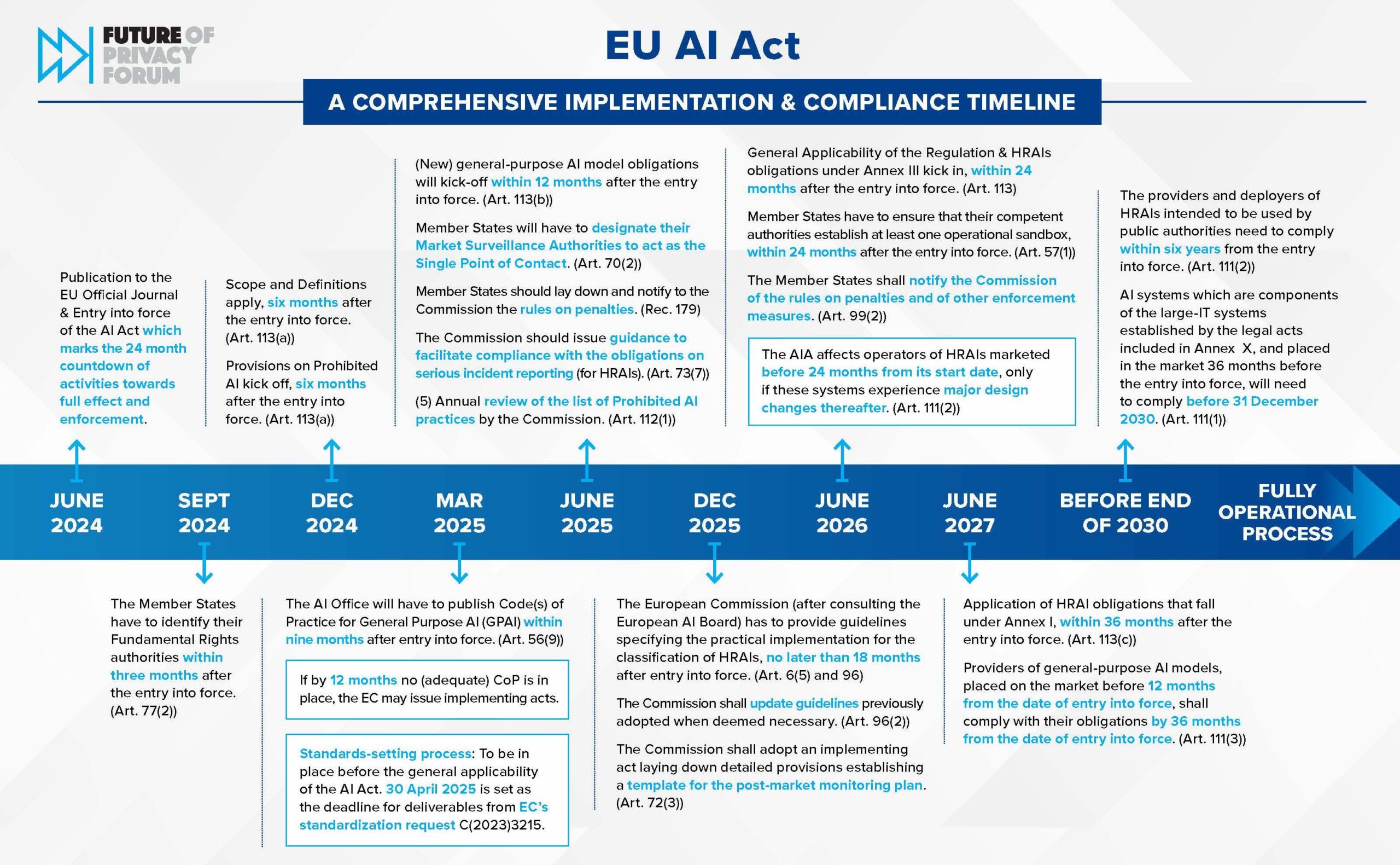
FPF Training Program 2024 – Main
FPF Training Program Live Virtual Trainings for Individuals and Teams FPF PRIVACY TRAINING FOR INDIVIDUALS & TEAMS In today’s rapidly evolving technological landscape, data privacy and artificial intelligence (AI) have become crucial areas of focus for organizations across various industries. The Future of Privacy Forum (FPF) Training Program provides an in-depth understanding of today’s most […]

China’s Interim Measures for the Management of Generative AI Services: A Comparison Between the Final and Draft Versions of the Text
Authors: Yirong Sun and Jingxian Zeng Edited by Josh Lee Kok Thong (FPF) and Sakshi Shivhare (FPF) The following is a guest post to the FPF blog by Yirong Sun, research fellow at the New York University School of Law Guarini Institute for Global Legal Studies at NYU School of Law: Global Law & Tech […]

Two New Apple and Google Platform Privacy Requirements Kicking In Now
Apple’s important mandatory requirements affecting iOS apps are about to kick in, and Google’s new requirements for publishers and advertisers have just gone into effect. Accurately implementing these requirements calls for close cooperation between the legal, privacy, and ad ops teams. Apple’s Privacy Manifests At WWDC 2023, Apple announced privacy manifests, signatures for SDKs, and […]

15th Annual Advisory Board Meeting 2024
Welcome! This page will be your primary source for all 15th Annual Advisory Board Meeting details and resources. Planning to attend this year’s Advisory Board Annual Meeting? Join us on Wednesday, June 5th, for AI FORWARD: FPF DC Privacy Forum, which is open to the public. DC Privacy Forum: AI Forward will explore the intersection of data privacy and AI, […]

Privacy and the Rise of “Neurorights” in Latin America
Authors: Beth Do, Maria Badillo, Randy Cantz, Jameson Spivack “Neurorights,” a set of proposed rights that specifically protect mental freedom and privacy, have captured the interest of many governments, scholars, and advocates. Nowhere is that more apparent than in Latin America, where several countries are actively seeking to enshrine these rights in law, and some […]

FPF Statement on the adoption of the EU AI Act and New Resource Webpage
“Today the European Union adopted the EU AI Act at the end of a long and intense legislative process. At the Future of Privacy Forum we believe that multistakeholder global approaches and advancing common understanding in the area of AI governance are key to ensuring a future with safe and trustworthy AI, one that protects […]

FPF Resources on the EU AI Act
The EU AI Act is expected to play a crucial role in global development of AI Governance frameworks. We are compiling on this page a continuously updated list of FPF Resources dedicated to the EU AI Act, as well as to its relationship to the EU GDPR and other privacy and data protection law. Last […]

Colorado’s Approval of Global Privacy Control: Implications for Advertisers and Publishers
The privacy laws of both Colorado and California require organizations to recognize Universal Opt-Out Mechanisms (UOOMs), a tool through which a person can invoke their opt out rights broadly across all the websites they visit. While California has required responding to certain UOOMs since July 2021, the Colorado Attorney General has only recently approved their […]

FPF Joins the NIST Artificial Intelligence Safety Consortium
The Future of Privacy Forum (FPF) is collaborating with the National Institute of Standards and Technology (NIST) in the U.S. Artificial Intelligence Safety Institute Consortium to develop science-based and empirically backed guidelines and standards for AI measurement and policy, laying the foundation for AI safety across the world. This initiative will help prepare the U.S. […]

The Garden State Joins the Comprehensive Privacy Grove
On January 16, 2024, Governor Murphy signed S332 into law, making New Jersey the thirteenth U.S. State to adopt a comprehensive privacy law to govern the collection, use, and transfer of personal data. S332 endured a long and circuitous route to enactment, having been introduced in January 2022 and amended six times before being passed […]
